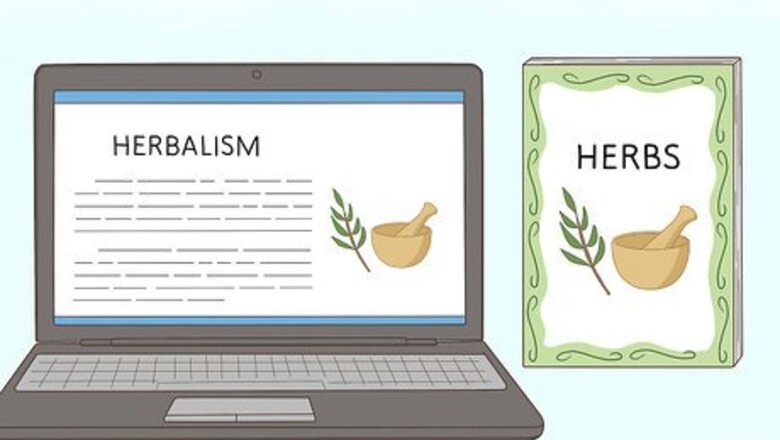
views
X
Research source
Self Education
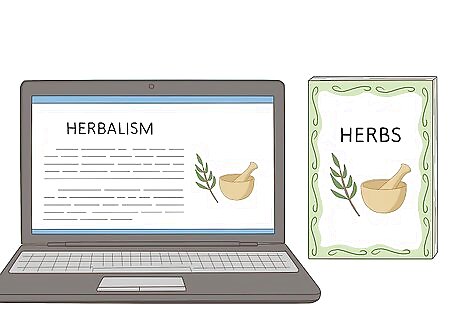
Read about herbalism and herbs to start building your base of knowledge. Many herbalists begin with self-directed study and learning. To start your education, research herbalism online and in books. Helpful books for beginning herbalists which provide clear explanations of foundational concepts, have a lot of useful information, and offer actionable steps include: Medicinal Herbs: A Beginner’s Guide by Rosemary Gladstar The Way of Herbs by Michael Tierra Encyclopedia of Herbal Medicine by Andrew Chevallier Body into Balance by Maria Noel Groves The Gift of Healing Herbs by Robin Rose Bennett While books are a good place to start, you shouldn't stop learning there. Hands-on learning through a school or an apprenticeship will teach you the more subtle aspects of diagnosis and treatment.
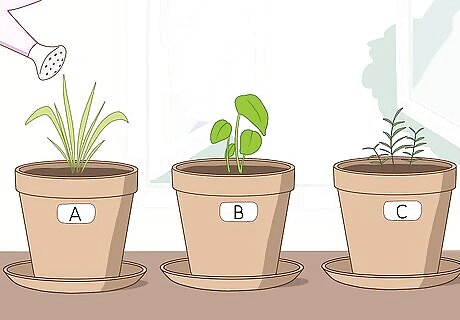
Grow your own herbs. Start growing herbs for your tinctures and recipes at home. This is good practice if you want to grow and sell herbs professionally as an herbalist. It also ensures that your tinctures and recipes will be made with high-quality ingredients. Keep your herbs well organized and clearly labeled. Some of the most common herbal supplements include echinacea, evening primrose, gingko biloba, ginseng, and St. John's Wort.
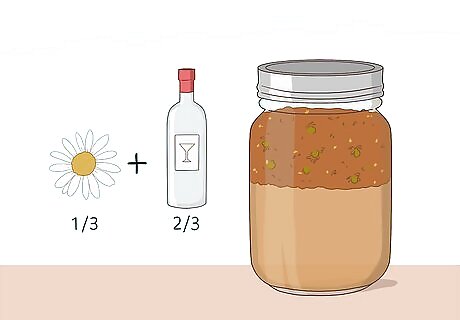
Make tinctures with various herbs. Fill a glass jar 1/3 to 1/2 full, depending on how strong you want your tincture to be, with the dried herb of your choice, making sure not to pack it down. Fill the rest of the jar with a base ingredient, such as alcohol, and stir the ingredients with a spoon. Alcohol, such as vodka or 80-proof rum, makes a good base ingredient. You can also use glycerine, vinegar, or even honey. Use whatever herbs you want, depending on what kind of tincture you're making. For example, choose chamomile for a tincture that promotes restful sleep or echinacea for immune system support when you’re battling a cold. Store your tincture in a cool, dry place for 3 weeks to 6 months. Shake it daily and when you’re ready to use the tincture, strain it through cheesecloth and store it in dropper bottles or clean glass jars. Note that a standard adult dose of herbal tincture is ⁄2 to 1 teaspoon (2.5 to 4.9 mL) up to 3 times daily.
Formal Education
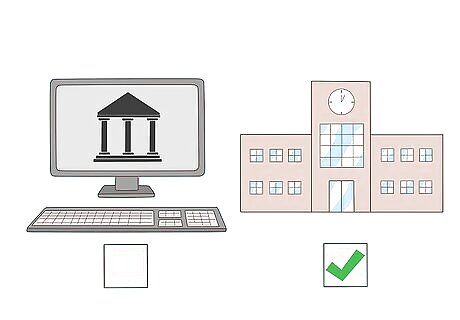
Attend herbal school online or in-person to further your education. There are many herbal schools to choose from, with different curriculums and emphases, from scientific/evidence-based to the more folk/traditional. Some are online programs, and others are on-site with physical classrooms and classmates. Research different schools and programs and choose one that fits best with your needs and interests. Attend herbal conferences to ask fellow conference-goers about their experiences and what programs and courses they’ve liked (or disliked). Visit https://www.americanherbalistsguild.com/ for a helpful (though not exhaustive) list of good herbal schools.
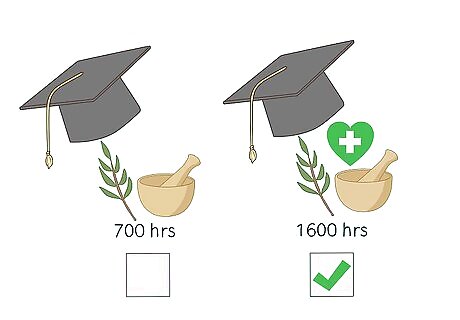
Choose a program with 1,600+ hours of study. If you want to be a non-clinical career herbalist, opt for a 1-2 year program with a minimum of 700 hours. However, to be a practicing clinical herbalist, the American Herbalists Guild recommends choosing a program with a minimum of 1,600 hours of study at a school of herbal medicine, including a 400-hour clinical requirement. You can learn the basics of herbalism from a 100-300 hour introductory program. Be aware that there is no certifying agency or licensing board for herbalists in the United States. Most herbal schools will award a certificate of completion when you graduate, but this is not the same thing as being officially board-certified.

Get a graduate or medical degree to practice herbal medicine.To be a practitioner of Traditional Chinese Medicine, get a Master's or doctoral degree. To be a naturopathic or allopathic doctor, get a medical degree and then further training in the field of herbalism. To attend graduate school or medical school, you need a Bachelor's degree. Consider majoring in botany, biology, or a related science field. To be a naturopathic doctor, complete a 4-year graduate-level program accredited by the Council on Naturopathic Medical Education after finishing medical school. After graduation, you need to pass the Naturopathic Physicians Licensing Exam (NPLEX) before taking the state licensure exam. You must re-certify with 20 hours of approved continuing education each year.
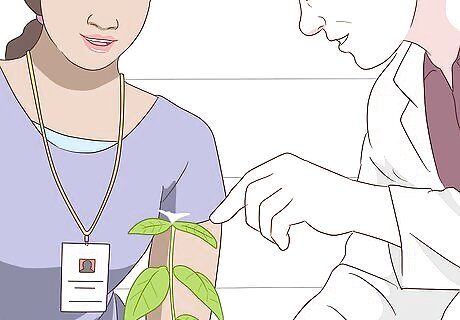
Do an apprenticeship to gain practical experience. Find an herbal mentor whom you admire and shadow them to gain insight into running an herbalist business, making compounds, and interacting with clients. Set out the terms of the apprenticeship in writing, including hours per week, and compensation (whether it's in money, goods, or strictly in mentorship, or some combination of both). Try a trial period of a week with your mentor first to see if you're well-suited to each other. If you're a newly graduated naturopathic physician, considering shadowing an experienced naturopathic physician for a year or 2 instead of doing a residency, which isn't required for naturopathic physicians.
Career Path
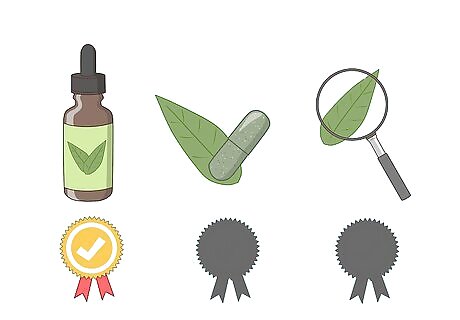
Choose your specialties or services, depending on interest and demand. There is no single career path for herbalists. Find a niche that you can fill based on your expertise and the needs of the community. For example, you might specialize in making tinctures for specific conditions, like menopause, or work primarily with a particular population, such as pregnant women. Possible livelihoods for herbalists include: Naturopathic physician or practitioner of Traditional Chinese Medicine Clinical herbalism, in a private or integrated practice Making herbal products, such as tinctures or tea blends Retailing and marketing herbal products, online or in a brick-and-mortar store Teaching about herbalism, for instance in herbal schools, community centers, conferences, or camps Researching herbs for universities or governments, or doing GMP testing on products.

Work in a natural food store to get your foot in the door. Alternatively, you could work with a supplement manufacturer. These jobs can get you connections in the field and help you network with other herbalists and related specialists. The paycheck can also help you financially as you try to grow your career as an herbalist. Search online for full- and part-time jobs in the herbalist field. Check out https://www.naturalindustryjobs.com/currentjobs.asp for listings of relevant positions.
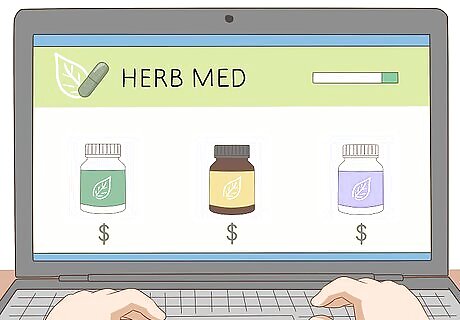
Develop an online presence. Market yourself and your business with a nice website and social media pages. Connect with successful herbalists and healthcare practitioners online, by following them on Twitter, Facebook, and Instagram, and signing up for mailing lists. Analyze the ways that they advertise, get clients, and connect with their communities, and implement successful practices into your own marketing plan. Try writing articles for blogs or local papers to get your name out there and showcase your expertise.

Build up a client base. Start with friends and family members and ask them to refer people they know to you. You can also post ads in the newspaper, at local businesses, or online to get new clients. Ask your clients to pass your information along to anybody they know who might be in need of herbalist services.

Get business training if your money and marketing skills aren’t strong. Join small business associations and try taking a course in business, bookkeeping, and marketing. Some herbal schools also provide business-focused training programs, such as the Herbal Academy’s Entrepreneur Course or the Commonwealth Herbs’ Business Mentorship. Check out the book Business Mastery by massage therapist Cherie M. Sohnen-Moe for a helpful guide in mastering the business side of your career.
Legal and Ethical Limits
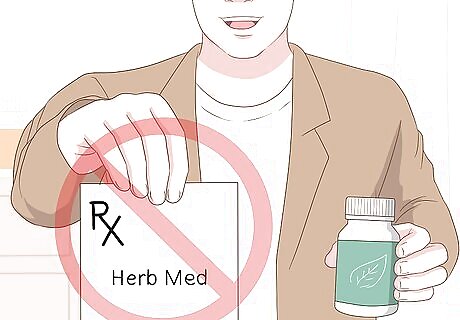
Don’t make any diagnoses or prescriptions unless you're a doctor. Herbalists who haven't also done medical degrees are not doctors, and so are legally not permitted to ‘practice medicine without a license.’ This includes diagnosing, prescribing, and using terms like ‘treat’ or ‘cure.’ Don’t advise clients on how to take (or stop taking) pharmaceutical medications. You can legally make recommendations, educate your clients about specific herbs, and dispense herbs.
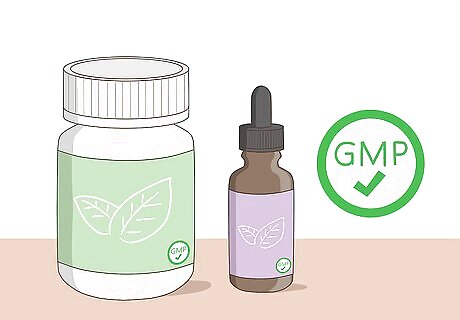
Follow the FDA’s Good Manufacturing Practices (GMPs) for products. GMPs address every part of the manufacturing process of herbs and herbal products, including identification of the ingredients, purity assurance, and personnel training and hygiene. There are also labeling requirements for products, including regulations about listing ingredients and any serious side effects, making claims about the product’s structure and function, and issuing disclaimers. For more information about GMPs contact your local or state organic certification agency, or visit the FDA website: https://www.fda.gov/Food/GuidanceRegulation/GuidanceDocumentsRegulatoryInformation/DietarySupplements/ucm238182.htm. Whether you’re a small community herbalist or a multi-million dollar supplement manufacturer, if you make and sell your own products to the public, particularly tinctures, you’re legally obligated to comply with the GMPs. The FDA can shut your business down for non-compliance.
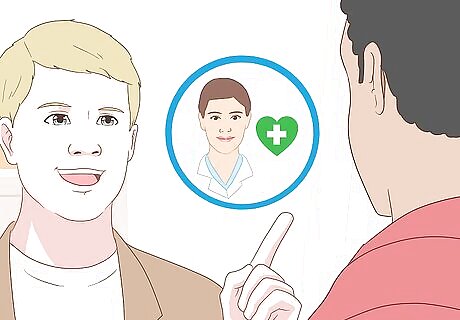
Make referrals for clients with conditions beyond your expertise. It’s important to know the limits of your knowledge and abilities. Develop a go-to list of practitioners to whom you can refer clients when their problems and needs are beyond your ability to help. Judiciously making referrals will increase your clients’ trust in you, as well, rather than hurt your business. For example, you probably aren’t prepared to take on a client who has cancer if you’ve only taken a 6-week course on herbs.



















Comments
0 comment